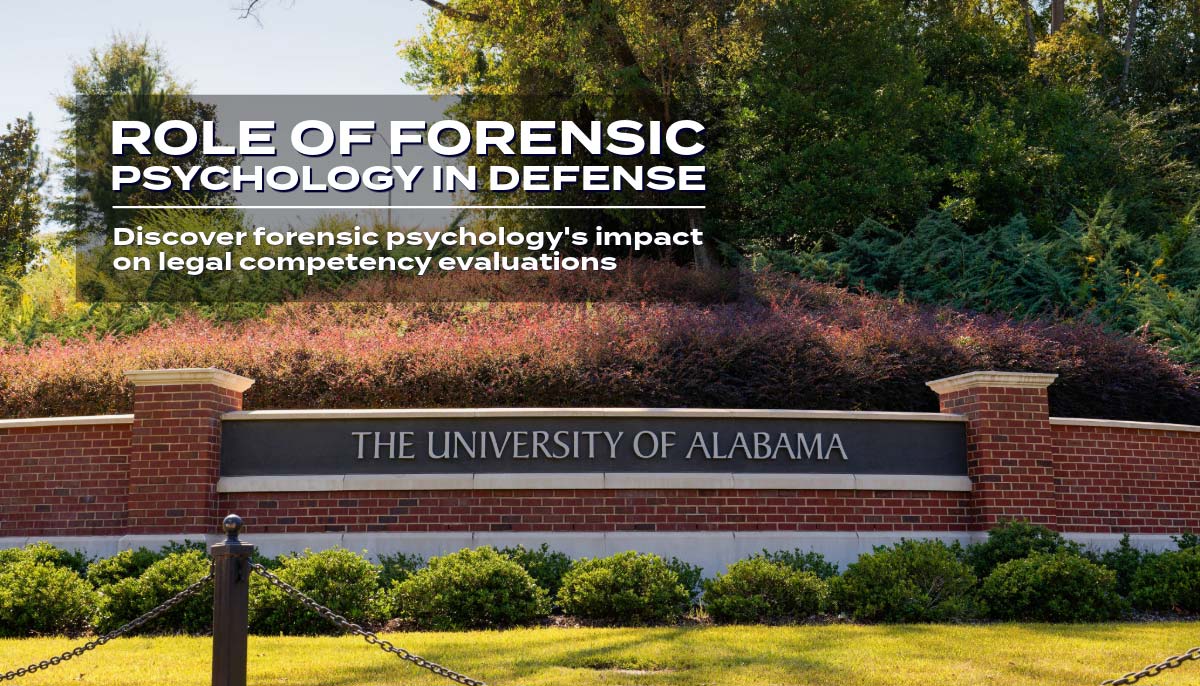
In the intricate realm of federal and white-collar criminal defense, grasping the nuances of evidence and its implications on a defendant’s mental fitness for trial is crucial. NiaLena Caravasos, a distinguished criminal defense attorney, played a significant role in a forensic psychological research study conducted by the University of Alabama. NiaLena was uniquely qualified to participate in this study due to her success with integrating forensic psychology / psychiatry into her own federal criminal and white collar crime cases, fortified by her experience as a co-author on the subject with world-renowned forensic psychiatrist Robert Sadoff, M.D. as well as a guest lecturer in a fellowship training program at the Department of Psychiatry of the Perelman School of Medicine at the University of Pennsylvania. This study illuminates the evaluative processes used by defense attorneys to determine a defendant’s competency to stand trial—a cornerstone in ensuring a fair legal process.
The Intersection of Law and Forensic Psychology
Forensic psychology acts as a bridge between psychological insights and legal standards, particularly in assessing the mental state of defendants. The research initiative at the University of Alabama sought to delve deeper into this intersection, focusing on how evidence is interpreted by legal professionals in high-stakes environments. NiaLena Caravasos’ participation in the study provided valuable insights from the frontline of criminal defense.
Methodology and Insights from the Study
The study involved NiaLena reviewing a series of mock case files—each designed to simulate real-life scenarios that defense attorneys might encounter. Her task was to assess various defendants’ mental competency, which is a prerequisite for proceeding to trial. Competency, in legal terms, refers to the ability of a defendant to understand the charges against them, the proceedings, and to effectively communicate with their defense counsel.
Criteria for Competency Evaluations
The criteria used to evaluate competency are stringent, aiming to ensure that only those fully capable of engaging in their defense are called to answer charges in court. NiaLena’s assessments highlighted the dual paths that might be taken: proceeding directly to court if a defendant is found competent, or referring them for a mental health evaluation if there are doubts about their mental fitness.
Impact and Applications of the Research
The findings from this study are poised to influence both academic and practical aspects of criminal defense strategies. By integrating forensic psychology more deeply into the evaluation process, defense attorneys can better advocate for their clients, ensuring that justice is not only served but is also fair and informed by psychological insights.
Conclusion: Advancing Legal Competence through Psychology
This collaborative study between NiaLena Caravasos and the University of Alabama is more than an academic exercise; it is a real-world application of forensic psychology that enhances the legal process. The insights gained from such research are crucial in refining the approaches to evaluating a defendant’s competency, ultimately contributing to more equitable outcomes in the criminal justice system.
Through rigorous examination and valuable contributions, the study underscores the importance of a multidisciplinary approach in legal defense, where law and psychology converge to protect the rights and mental well-being of defendants facing trial.












